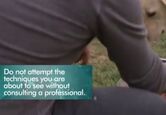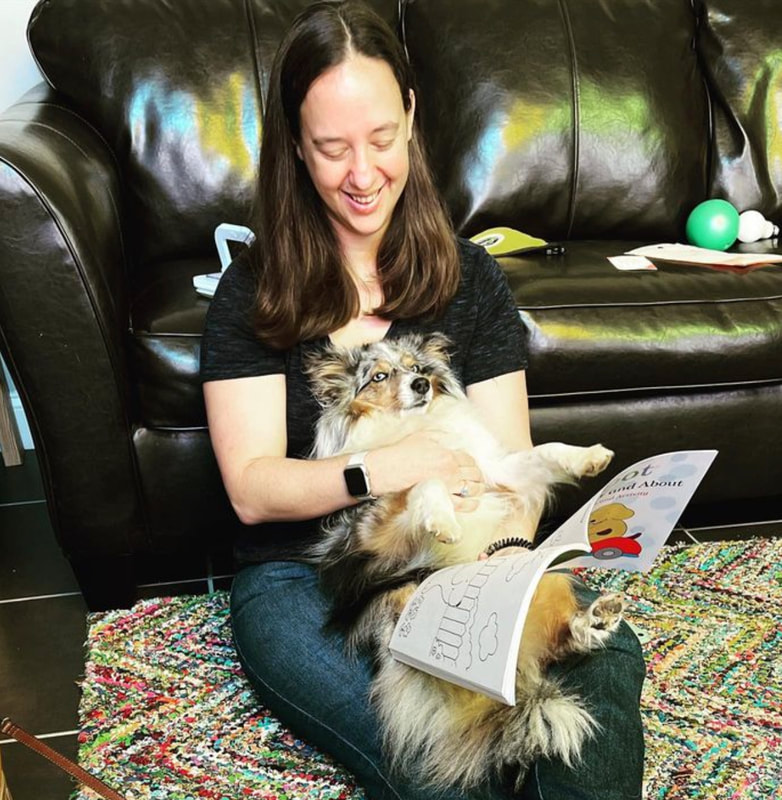Every few years......a new reality show about dog training pops up on TV. Personally, I have a love/hate relationship with these shows. On one hand, watching a show about training helps people think more about working with their own dogs; but on the other hand, training can look very different on TV than it is in real life, and people end up with unrealistic expectations of what it’s like to train their dog. After watching at least one episode of probably every dog training reality show that’s been aired, here are a few take-aways I hope you keep in mind as you’re watching these shows: Don't try this at home. This is the one bit of advice you should take! This is the one bit of advice you should take! There’s a good-looking guy or girl right there on national TV showing how to train a dog. Why not do the same thing the TV trainer did with your dog? Because the TV trainer said not to. There are warnings at the beginning of every show – and often in the middle and end as well – saying not to try these techniques and to contact a professional in these situations! Which brings us to the next take-away: Ratings, not education, is the objective
So let’s get into how TV cameras capture these amazing transformations: Dramatic training looks good on camera Flooding is not a good way to train humans, dogs, or snakes. Flooding is not a good way to train humans, dogs, or snakes. The most popular TV trainers primarily rely on the training technique called Flooding. Flooding means a person or animal is exposed to their worst fear for an extended period of time. For example, a person who is afraid of snakes would stand in a snake pit for hours on end letting the animals crawl all over them. On dog TV shows, examples include forcing three leashes on a dog who is afraid of wearing anything around his neck, putting an aggressive dog in a yard with other dogs and people so that he can’t get away or attack, physically restraining dogs and forcing them to do things, are all examples of flooding. Flooding is dramatic – the dog snarls and flails at the end of the leash like a hooked fish – and “works” very quickly: the body can’t sustain living with that level of panic for very long before it simply becomes tired and, in most cases on TV, the dog lays down and rests. Far from being in a “calm state,” these dogs are literally scared to the point of exhaustion. But it sure looks like the training works, right? Editing worksThe most powerful tool of any director is the cutting tool. While it looks like it only took a few hours or maybe a few days for the dog to get trained, industry insiders do know that these shows usually employ other trainers (who sign strict confidentiality agreements) to work with the dogs between filming days. The question remains: what sort of training happened when the cameras were turned off, and how long did that training take? How can we ever know what might have happened when the camera was turned off? Dog training is a scienceHow do we know that flooding usually makes fear and anxiety worse, and rarely actually “cures” the fear? There have been countless scientific studies on the use of flooding in humans and other animals which consistently come to that same conclusion. How do we know that several other training methods offer better, more long-lasting results? They’ve been studied scientifically, too. How do we know that putting a dog through this level of stress and anxiety is unhealthy? Doctors and veterinarians have studied the effects of stress on dogs’ bodies (human bodies as well!) and the resounding consensus is that this is needlessly harmful. Surely the guy on TV knows what he’s doing. Get educated about dog training education "I'm a natural. Bridges love me." "I'm a natural. Bridges love me." Dog training (at least at the time this article is published) is an unregulated industry. There is no licensing, certification, accreditation, or education required for a person to advertise and get paid as a dog trainer. It is one of the very few “buyer beware” service industries… which means that before taking the advice of a dog trainer, we have to ask where that person got the information he’s using to train the dog. Trainers who have legitimate education in the field will tell the world about it (just read my blog post about continuing ed). Trainers who do not have education will lean heavily on their experiences training their own personal dogs, will boast about using “unique methods,” and will rely on vague constructs like “positive energy,” “balance,” “dominance,” “submission,” etc. Sure TV trainers, like pretty much all dog trainers, have natural talent. Pretty much every engineer has a natural talent for figuring out how things work, but that doesn’t mean I’d want a “self-taught” engineer building me a bridge! What he’s doing may be uncomfortable, but ultimately he’s saving lives! That’s a welcome tradeoff! All legitimate dog trainers save lives.Shows get better ratings if there is a “danger” element. Many dogs on these shows are actually in no real danger of being rehomed or euthanized regardless of what the cast says on camera. But regardless, there are thousands of credentialed dog trainers, behavior consultants, and vet behaviorists - including myself! - who work day in and day out with dogs who show the same dangerous “red zone” behaviors that the TV trainers work with. We get excellent results, without causing pain, without causing fear, and without causing undue stress or anxiety in the dogs. We do it because we have the knowledge, experience, and continuing education to stay on the cutting edge of what the best trainers in the industry are doing. Does your dog have a behavior problem that you need to fix? Learn how to find the right trainer for you. Reputable dog trainers have:
Watching dog training on TV is fun, exciting, and so often heartwarming. But ultimately I don't think these shows were intended for more than simple entertainment. If you really want to know how to train a dog, contact me or comment here for recommendations of books, videos, and other resources to help you get started the right way!
2 Comments
11/20/2019 03:55:13 pm
Training is part of the process in order to succeed. I know that it is hard, in fact, it is consuming almost all of your time right now, but it is what you need to do. Sacrifices are what you need to do if you want to improve. I am not saying that you just need to train all day, but at least, focus on what you want to achieve. I want you to go and train as efficiently as you can.
Reply
Great advice, thanks one of my dogs will do several cues without a treat. So it is harder to get consistent behavior with them.
Reply
Leave a Reply. |
AuthorElizabeth Morgan specializes in training service dogs as the trainer and owner of Alabama Dog Academy. Archives
January 2024
Categories |
|
256-434-1747 (call or text)
[email protected] |
Proudly powered by Weebly




 RSS Feed
RSS Feed


